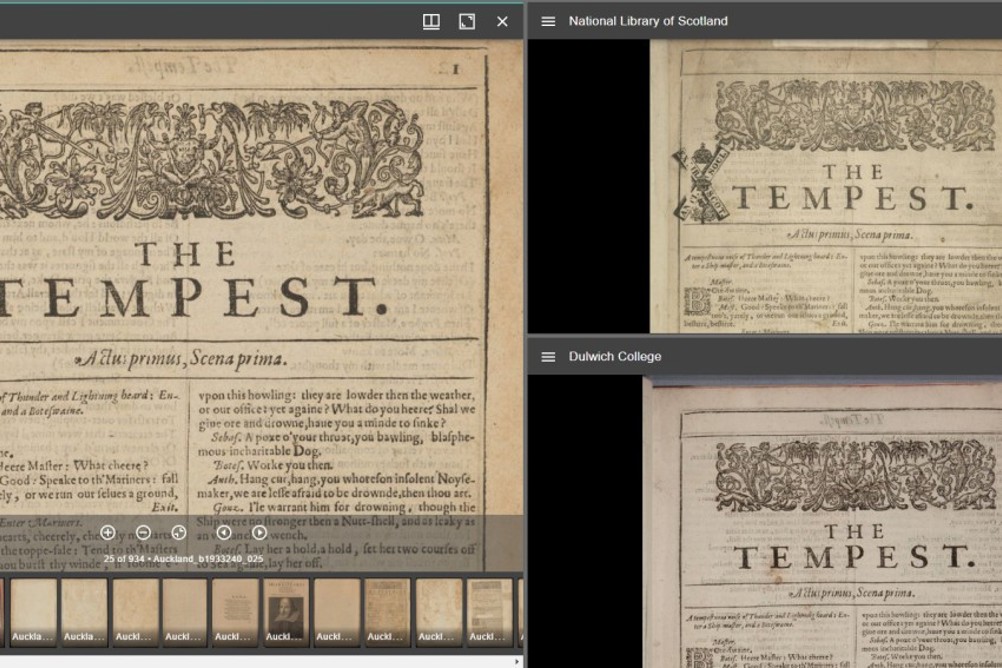Always on the lookout for Shakespearean happenings, Claudine Nightingale shares what she's spotted through her beady bardy binoculars.

It's not long now until Shakespeare's birthday (23 April), and what better way to celebrate than to take a closer look at the book that secured his legacy – the First Folio. And why stop at one? At First Folios Compared, you can look over 50 copies of the famous publication, sourced from all over the world, and compare them side by side.
You might wonder why anyone would bother looking at two copies of the same book together, even if it is by the famous bard. Each copy has been on its own exciting journey over the last 400 years – some stolen, others stood on by dogs, another ripped apart by one of its many owners (he only liked happy stories, so ripped out the tragedies section). As such, many have unique and intriguing marks, accumulated over time, that tell their tale. The inimitable Professor Emma Smith has written a short guide, found on the website, which shows users some of the fascinating differences you can find in First Folio copies, including printing errors, the changing portrait, and owner annotations.
Register now to continue reading
Register to the Drama & Theatre website today and gain access to all the latest news and developments from the world of drama education.
By registering you will receive:
-
Free access to 4 subscriber-only articles per month
-
Unlimited access to news and opinion on our website
Already have an account? Sign in here
